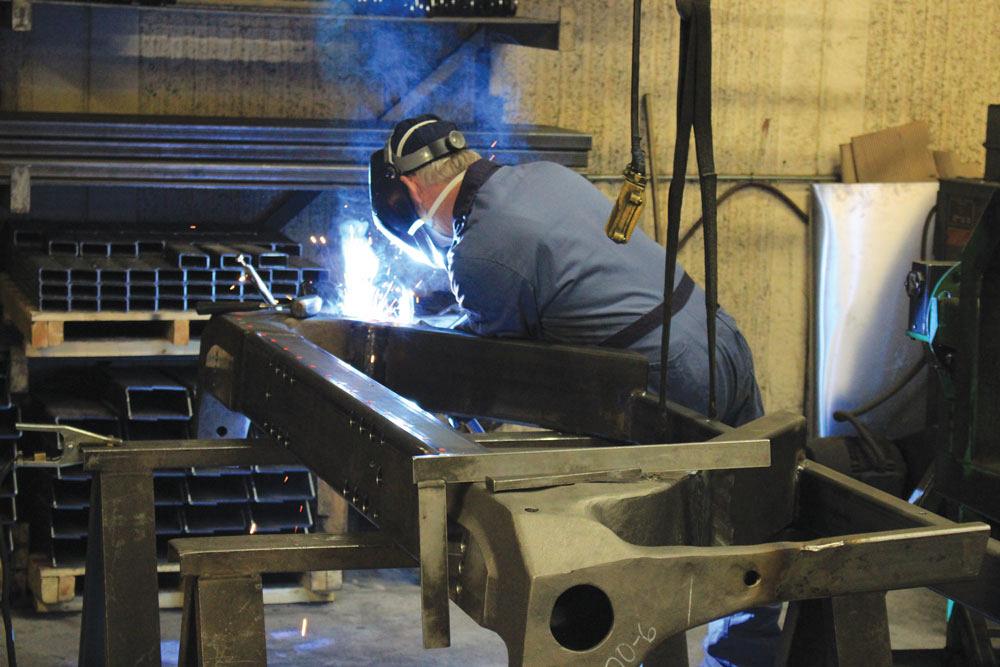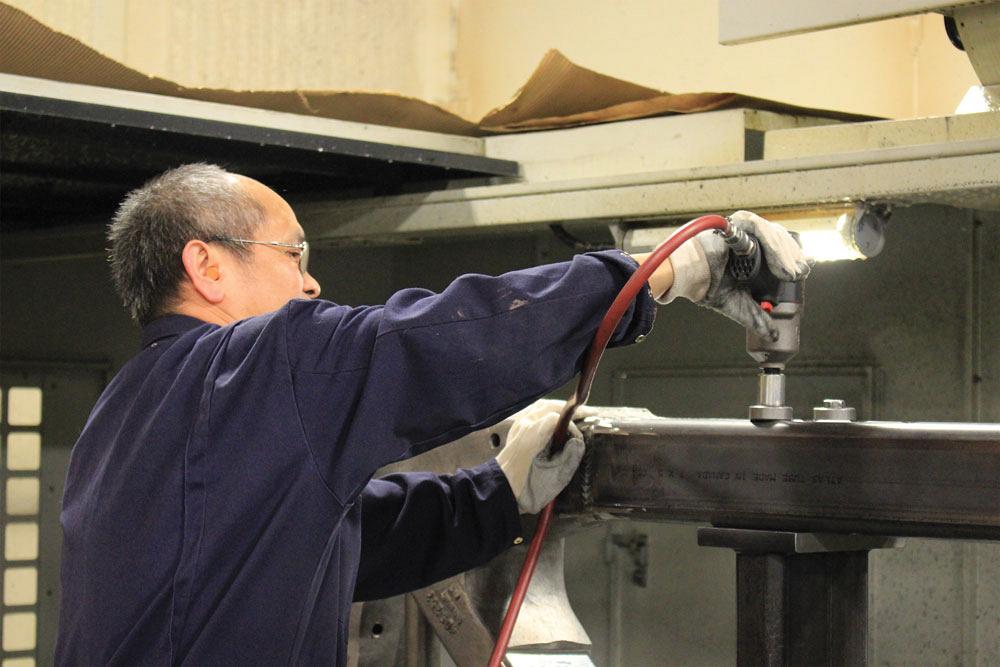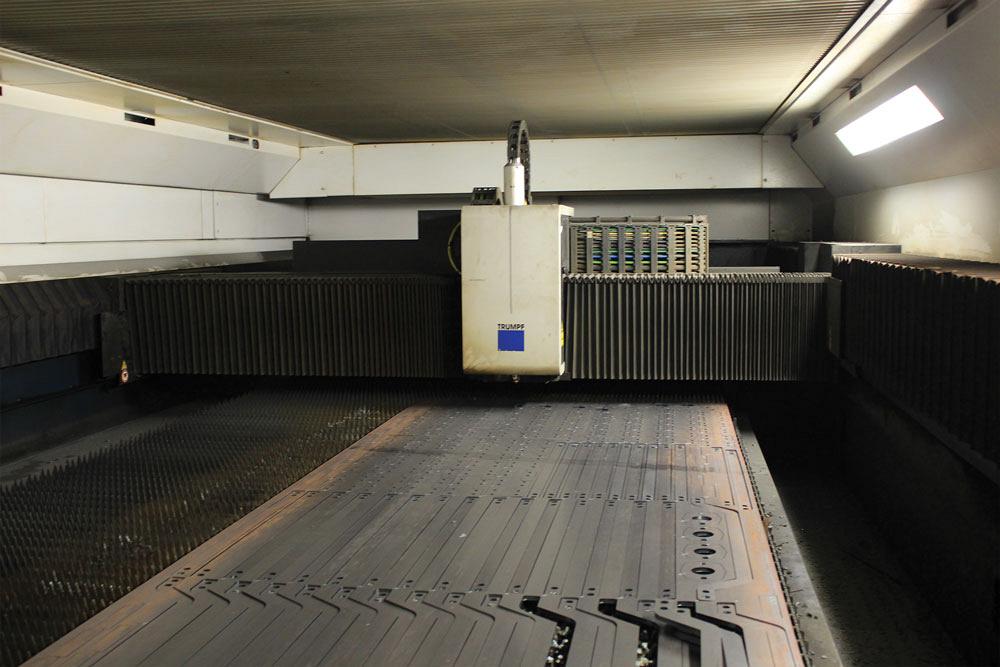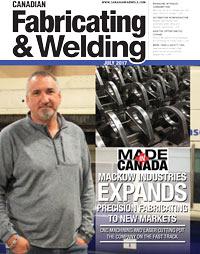- FMA
- The Fabricator
- FABTECH
- Canadian Metalworking
Mackow Industries Expands Precision Fabricating to U.S.
CNC machining and laser cutting put the company on the fast track
- By Sue Roberts
- July 17, 2017
- Article
- Made In Canada
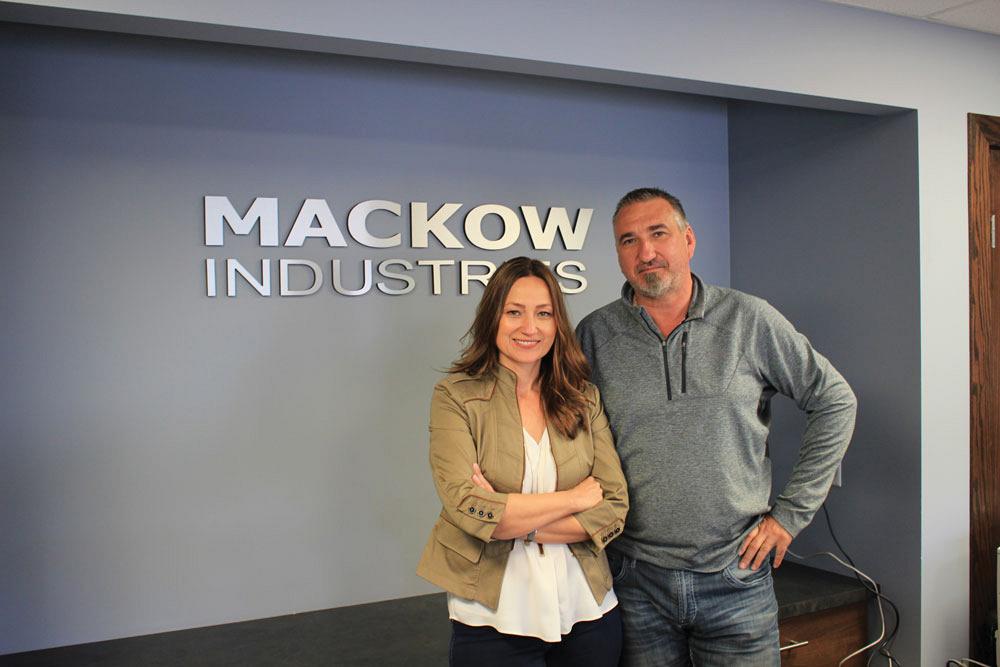
Liz Boroditsky, vice president, and her brother, Bob, president, continue a family tradition of working at Mackow Industries, established in 1984 by their father, John Mackow.
What’s the next move for a company that has increased its revenue 80-fold--from $250,000 to $20 million--a year since its inception? More growth. More space. More people. More equipment. More capabilities. More customers. Repeat.
That describes Winnipeg’s Mackow Industries.
In 1984 machinist John Mackow rented almost 300 sq. ft. of space to house one manual mill, bringing his expertise to Winnipeg’s manufacturers. Welding capabilities soon followed so the company could machine large weldments. The excellent quality of the parts put the company in a fast growth mode.
The first move occurred after only two years when it moved to a 5,000-sq.-ft. shop. Several moves later, the company purchased the building that houses it today. The facility was 9,000 sq. ft. when it was purchased in 1996, but additions since then bring the plant to over 50,000 sq. ft. today.
“The company started out making one and two components at a time for a mining company. They involved a lot of machining and welding,” said Bob Mackow, John’s son and current president. “Then we got involved with fabricating parts to repair buses in 15 to 20 quantities. Some of those parts involved laser cutting, and I would need to farm them out. I’d have to wait days to get them back and I couldn’t do that. Our service has always included fast turnaround.
“So we purchased our first TRUMPF laser. With the laser cutting capabilities, if it was Monday and a customer needed parts by Wednesday, we could do that.”
Mackow credits the first CNC mill with kicking growth into high gear. Although the company still has its manual machine shop, there are now 17 CNC mills. But, he said, things really went into overdrive after adding the laser.
It was a natural progression to expand cutting and welding capabilities. Then it added forming and primer painting to become a one-stop shop. TRUMPF lasers and press brakes, and Accurpress shears and brakes fill out the fabricating shop along with 12 welding stations. The majority of the equipment is less than 5 years old, reflecting the company’s strategy to stay current with new technologies.
It was also about the time the first laser was installed that the employee count started its rapid climb from six to 120.
Tradesmen at Mackow produce everything from one-piece, 3-tonne components to tight-tolerance, narrow shafts to fabricated sheet metal and light plate parts…all with extreme precision. At any time materials on the shop floor can include sheets and bars of steel, aluminum, and copper.
The customer list expanded to include companies like New Flyer which needs fabricated parts in quantities from 1,000 to 3,000 per year, and companies that need up to 10,000 milled parts.
Saving by Reducing
During 2016 the company began running a theory of constraints program that identified inventory and work-in-process (WIP) as bottleneck areas. Mackow said inventory was also beginning to create space issues…not for the first time.
“We changed things as far as how we run orders through the system so we won’t have all the WIP. We were running some orders 16 weeks in advance. We’d laser-cut some components and they would sit on the shelf for four weeks before the next process because they weren’t due for another eight weeks. We’re still in transition, but we’re almost where we want to be.
“Before, we kept adding to the building to store more parts. We’d add floor space, get another order, and add more floor space. That didn’t make sense. After applying the theory of constraints, our WIP has been cut in half and we have more room to work.”
As with most changes, adjusting the work flow created some difficulties. For a short time during the transition, on-time deliveries dropped from 98 per cent to 82 per cent.“I knew there would be a bit of a hiccup, but we followed the path. People on the floor like the change even though it was initially a bit of a headache. It makes sense to them, and everybody has bought into the process.”
The next change on the shop floor is the addition of several monitors to display key performance indicators and keep everyone up-to-date, in real time, as to what is going on with each order.
Heading South
Mackow Industries is opening a second company three hours south in Fargo, N.D. The decision to open a shop in the U.S. was prompted by the Buy American initiative. “It allows us to continue to grow as a company and build better relations with our American customers,” said Mackow.
The new building is nearly 60,000 sq. ft. Initially, the company will use about 20,000 sq. ft. for the shop and another 10,000 sq. ft. for material handling. The plan is to rent the rest until it is needed for the first U.S. Mackow expansion.
“Machines are being setup, everything is brand new. It’ll have a CNC horizontal mill; four welding stations with robotic welders; a powder coating unit; and a TRUMPF laser, tube laser, and brake,” said Mackow.
An estimated 10 to 12 employees will be hired from the Fargo area. No one is being moved from Winnipeg. “Management will go back and forth, but we have a plant manager to run the operations. Our databases will talk to each other, but it will be a separate company.
“We’re going to move some parts from here to there. We’ll classify which parts are Buy American, and that will guide us as to what will be produced in Fargo. When Fargo is up and running, we’ll look at diversifying a little more.” The Winnipeg plant also has customers who have facilities in the U.S. Some of their parts will be moved to Fargo to save on freight.
“I see the ag industry coming back and mining might come back. That will be good for both locations. I’m anticipating another $1 million or $2 million a year just from the potential jobs we are already aware of. It’s a bit stressful right now, but this is a winner.”
A new salesman will handle sales for Fargo and is about ready to start quoting.
Positioning for the Future
At one time five family members participated in the business. Two siblings continue today: Bob, who took over the presidential role when his dad retired, and his sister, Liz Boroditsky, who serves as vice president.
“I started out managing the office for my dad,” said Mackow. “I learned the business by watching the guys. Back then we were a machine shop doing large weldments.
“After growing from $250,000 to $20 million a year, it was tough to know where to take the company next. When you get to this size, you can’t just keep doing what you were doing to keep growing.”
So Makow was interested in listening to details when Mosaic Capital Corp., an investment company with headquarters in Calgary, Alberta, called in 2016 to discuss a partnership. “We sold 80 per cent of the business to Mosaic to take advantage of their business and marketing expertise. We’re still a family company; my sister and I hold the rest of the company. The decision to go with Mosaic was based on personalities.
“It’s a good fit. They have the expertise to make Mackow a leaner and more efficient company, but we have years of experience in providing quality parts.”
A key component in the decision to partner with Mosaic was its dedication to maintaining all of the Winnipeg employees and keep Mackow at the helm.
“I’ve got really good people. It’s the people that surround us that bring the success.”
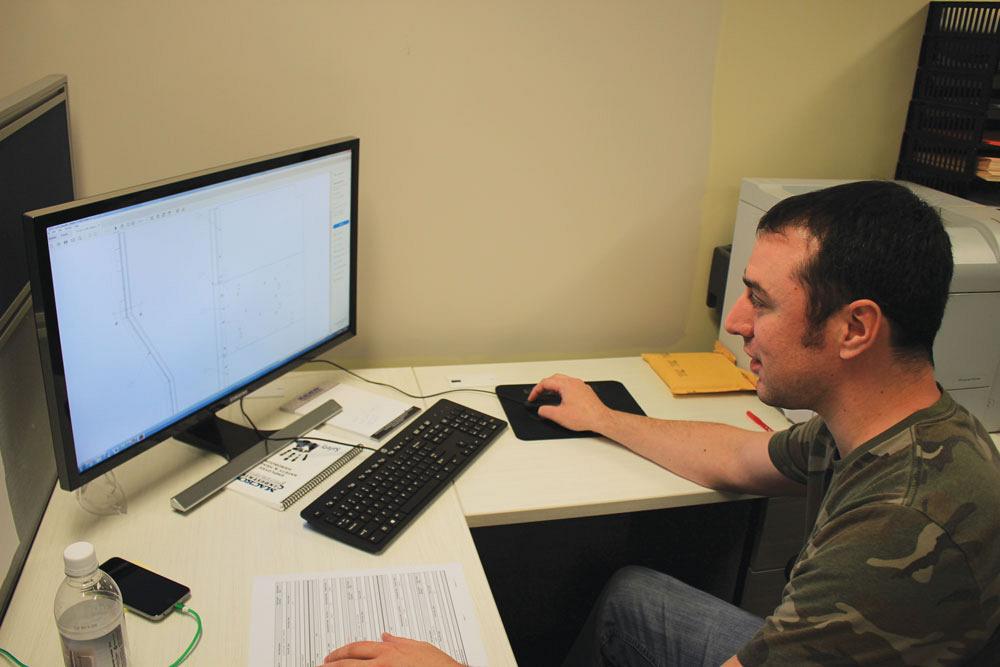
Engineering assistance is available as needed by customers and to ensure that parts are made in the most efficient manner.
Photos by Dave Stewardson.
Mackow Industries, 204-774-8323, www.mackowindustries.com
About the Author

Sue Roberts
2135 Point Blvd
Elgin, IL 60123
815-227-8241
Sue Roberts, associate editor, contributes to both Canadian Metalworking and Canadian Fabricating & Welding. A metalworking industry veteran, she has contributed to marketing communications efforts and written B2B articles for the metal forming and fabricating, agriculture, food, financial, and regional tourism industries.
Roberts is a Northern Illinois University journalism graduate.
subscribe now


Keep up to date with the latest news, events, and technology for all things metal from our pair of monthly magazines written specifically for Canadian manufacturers!
Start Your Free Subscription- Trending Articles
Portable system becomes hot tech in heat treatment
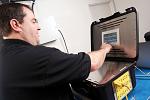
Cidan Machinery Metal Expo 2024 to be held in Georgia May 1-2
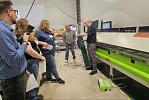
CWB Group launches full-cycle assessment and training program
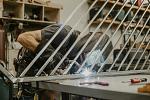
Achieving success with mechanized plasma cutting
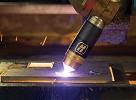
3D laser tube cutting system available in 3, 4, or 5 kW
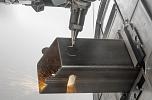
- Industry Events
MME Winnipeg
- April 30, 2024
- Winnipeg, ON Canada
CTMA Economic Uncertainty: Helping You Navigate Windsor Seminar
- April 30, 2024
- Windsor, ON Canada
CTMA Economic Uncertainty: Helping You Navigate Kitchener Seminar
- May 2, 2024
- Kitchener, ON Canada
Automate 2024
- May 6 - 9, 2024
- Chicago, IL
ANCA Open House
- May 7 - 8, 2024
- Wixom, MI













